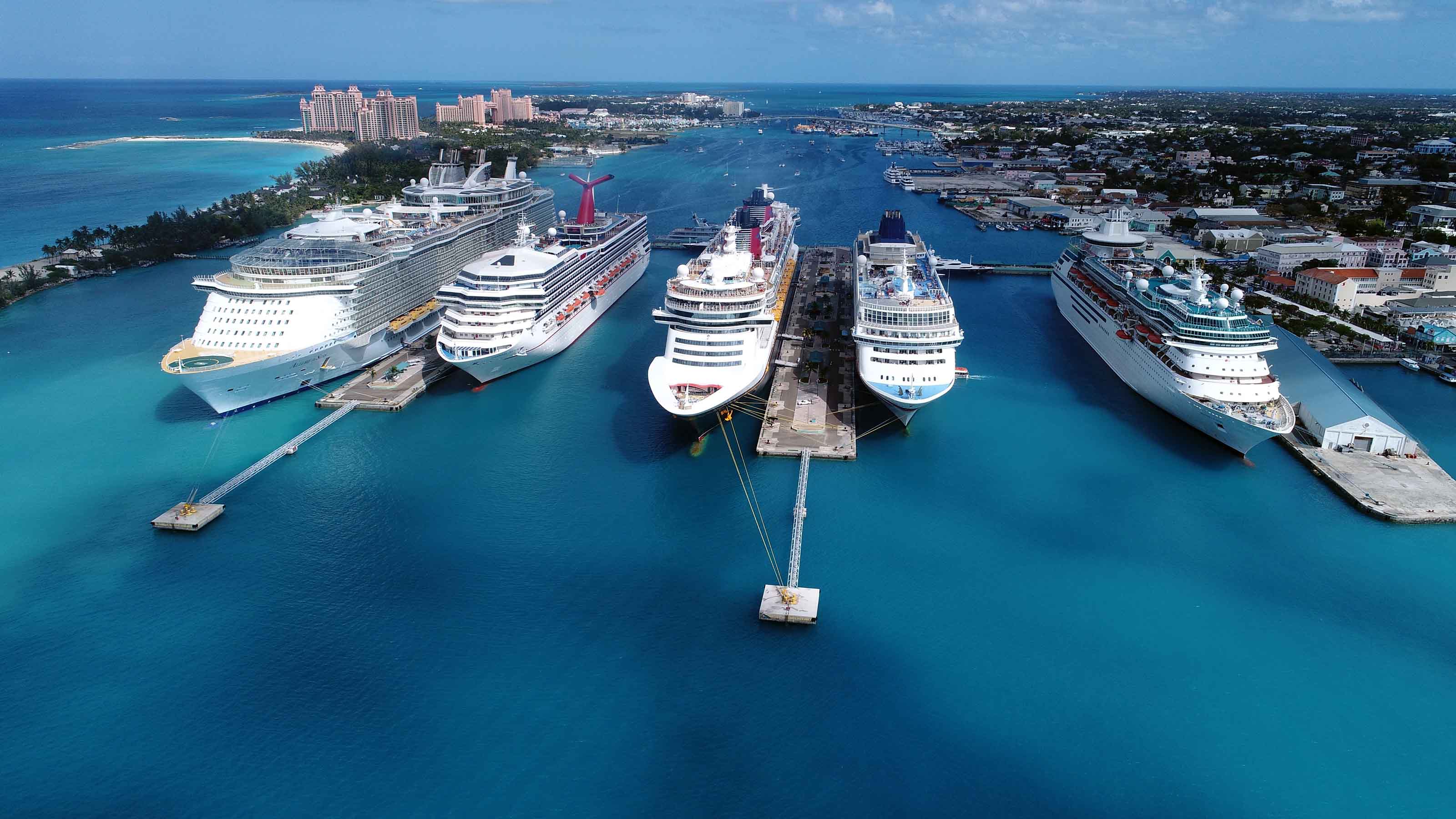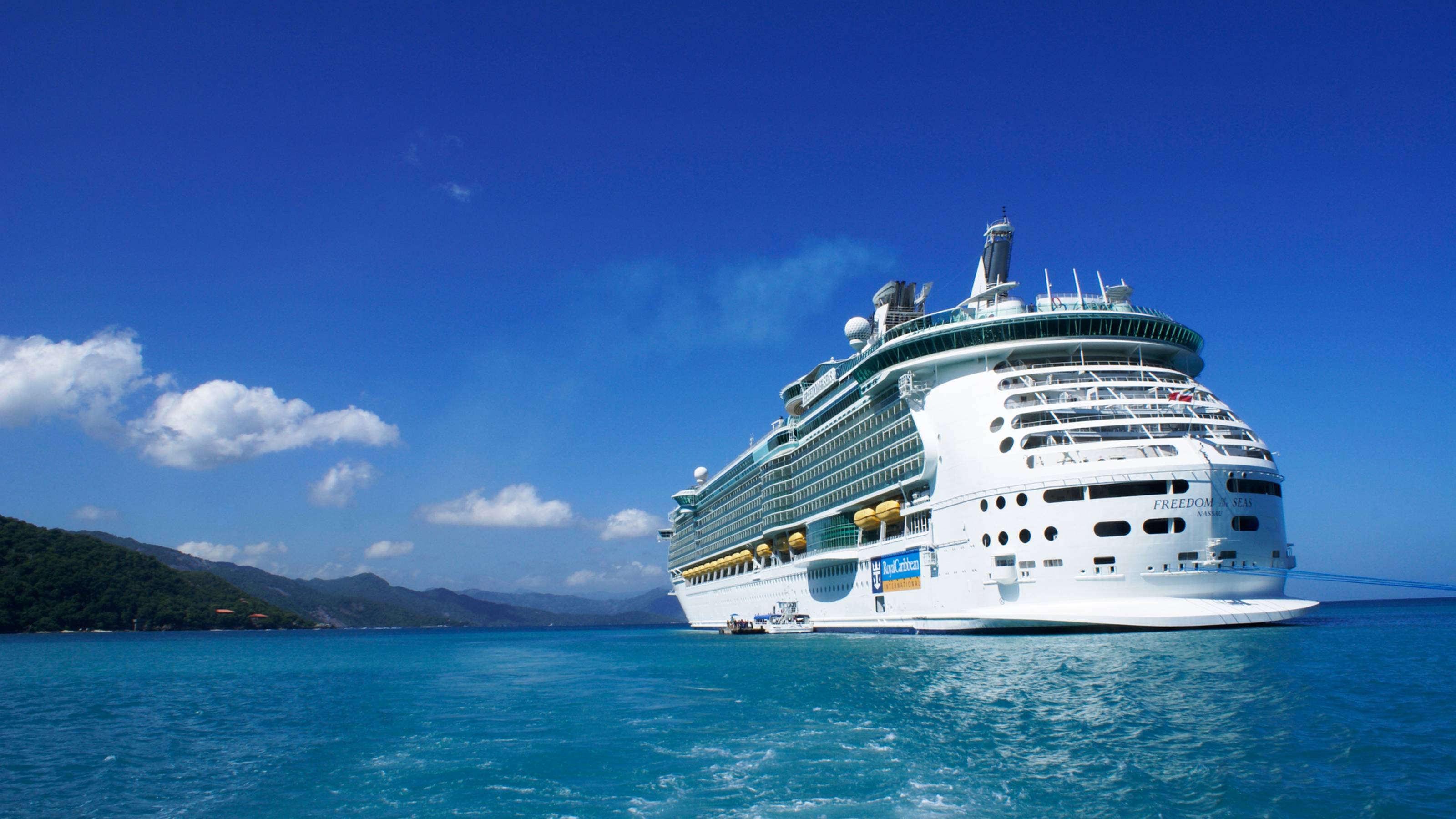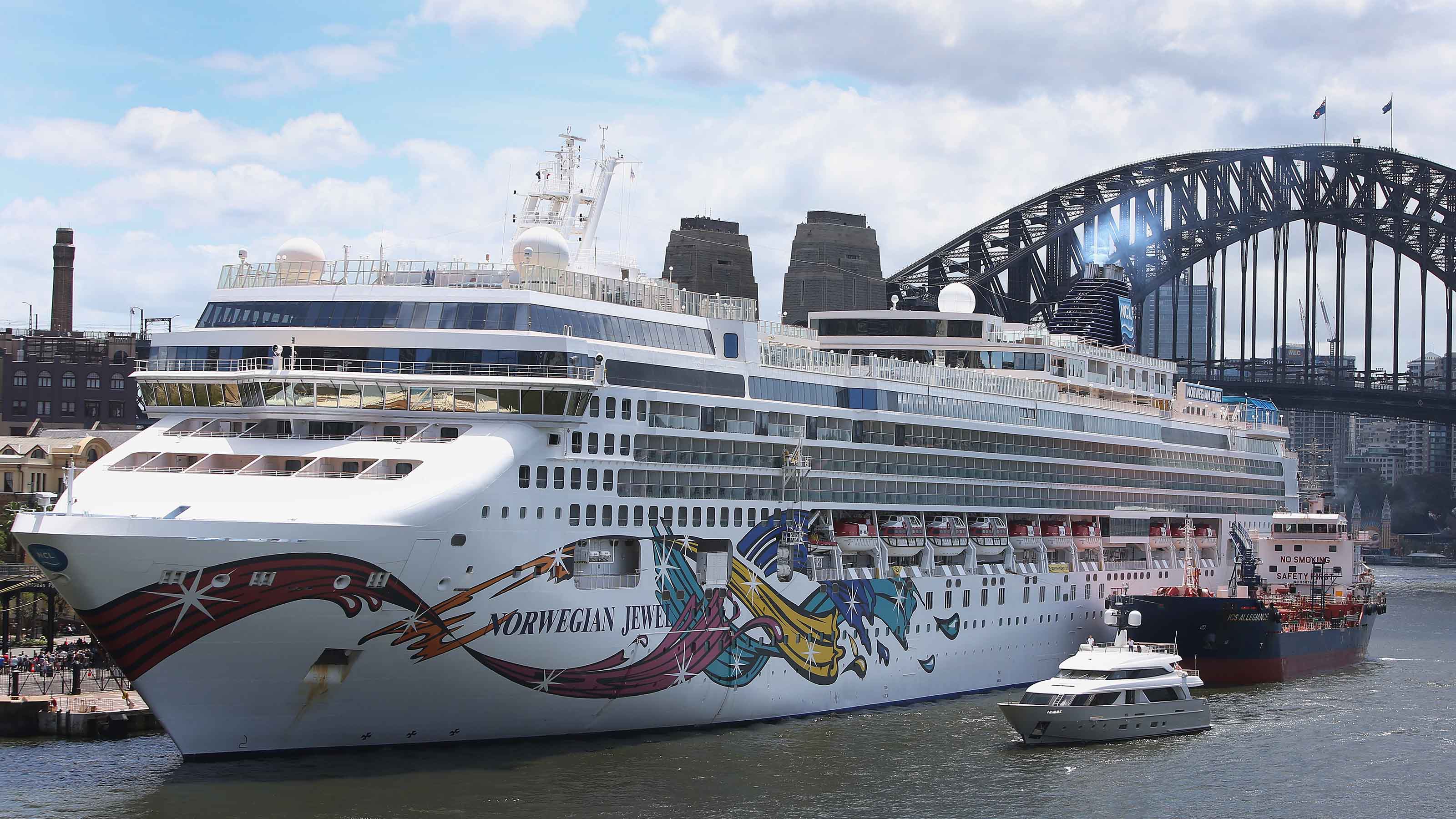Buy Cruise Line Stocks? The Pros Aren't So Sure
Cruise line stocks have performed well so far in 2021, but analysts are still sitting on the sidelines amid cloudy reopening plans.


Profit and prosper with the best of Kiplinger's advice on investing, taxes, retirement, personal finance and much more. Delivered daily. Enter your email in the box and click Sign Me Up.
You are now subscribed
Your newsletter sign-up was successful
Want to add more newsletters?

Delivered daily
Kiplinger Today
Profit and prosper with the best of Kiplinger's advice on investing, taxes, retirement, personal finance and much more delivered daily. Smart money moves start here.

Sent five days a week
Kiplinger A Step Ahead
Get practical help to make better financial decisions in your everyday life, from spending to savings on top deals.

Delivered daily
Kiplinger Closing Bell
Get today's biggest financial and investing headlines delivered to your inbox every day the U.S. stock market is open.

Sent twice a week
Kiplinger Adviser Intel
Financial pros across the country share best practices and fresh tactics to preserve and grow your wealth.

Delivered weekly
Kiplinger Tax Tips
Trim your federal and state tax bills with practical tax-planning and tax-cutting strategies.

Sent twice a week
Kiplinger Retirement Tips
Your twice-a-week guide to planning and enjoying a financially secure and richly rewarding retirement

Sent bimonthly.
Kiplinger Adviser Angle
Insights for advisers, wealth managers and other financial professionals.

Sent twice a week
Kiplinger Investing Weekly
Your twice-a-week roundup of promising stocks, funds, companies and industries you should consider, ones you should avoid, and why.

Sent weekly for six weeks
Kiplinger Invest for Retirement
Your step-by-step six-part series on how to invest for retirement, from devising a successful strategy to exactly which investments to choose.
Cruise line stocks have been sailing higher in 2021 on expectations the major lines will hit the open waters again this year. And they earned a boost earlier this month after the U.S. Centers for Disease Control and Prevention (CDC) issued much-anticipated reopening guidelines for travel ship operators.
More recently, though, some of the wind has been taken out of cruise stocks' sails.
CDC guidelines have failed to provide a specific reopening date for cruise operators. Concerns that rising debt levels could negatively impact shareholder value are another hurdle.
And cruise line stocks recently took another recent hit after the U.S. Food and Drug Administration (FDA) and CDC suggested halting the use of Johnson & Johnson's (JNJ) single-dose COVID-19 vaccine after six women developed blood clots within two weeks of getting their shots – potentially tapping the brakes on the pace of immunization.
The concern could be short-lived, considering nearly 7 million people in the U.S. have received the JNJ shot. And in a joint statement issued by the two federal agencies, they said they are "recommending a pause in the use of this vaccine out of an abundance of caution," adding that the "adverse events appear to be extremely rare."
Michael Reinking, senior market strategist at the New York Stock Exchange, adds that "The White House has said that there will not be a 'significant impact' on vaccinations overall" due to the recommendation.
While valuations for these recovery stocks might be elevated given their run higher this year, the recent pullback in cruise line names could be a potential entry point for those looking to ride out the choppy waters.
So, is it time to jump in? Read on as we look at three cruise line stocks to see which ones, if any, analysts like ahead of a possible summer restart.
Data is as of April 13. Stocks are listed in order of best year-to-date returns.

Carnival
- Market value: $33.4 billion
- Year-to-date return: 28.4%
Miami-based Carnival (CCL, $27.82) operates 87 ships in both the U.S. and abroad that dock at roughly 700 ports, and it does so under several brand names, including Carnival Cruise Line and Princess Cruises. Carnival, which typically sells its cruises through travel agents and tour operators, has paused all operations from its U.S. ports until June 30.
CCL shares traded above $50 in January 2020 before plunging into single digits just two months later. The cruise line stock has recovered about half of its pre-pandemic value, and is up more than 28% so far in 2021.
Stifel analyst Steven Wieczynski is confident there are calmer waters ahead. He rates the stock a Buy with a $35 price target, implying upside of more than 26% over the next 12 months or so.
"We expect CCL to emerge from this crisis as a leaner, more efficient company, which, combined with our continued confidence in the resilience of global cruise industry demand, strengthens our conviction in owning shares," Wieczynski says.
But the broader analyst community has mixed feelings on this cruise line stock. Of the 18 analysts covering CCL tracked by S&P Global Market Intelligence, six call it a Strong Buy, one says it's a Buy, seven maintain a Hold rating and four believe it's a Strong Sell. Perhaps more worrisome: Their average 12-month price target of $26.78 translates into 4% downside from current levels, suggesting it might be better to wait for a substantial dip before considering Carnival shares.

Royal Caribbean Cruises
- Market value: $22.1 billion
- Year-to-date return: 15.9%
Royal Caribbean Cruises (RCL, $86.53), also headquartered in Miami, visits more than 270 destinations across 72 countries, operating under the Royal Caribbean International, Celebrity Cruises and Silversea Cruises brands. Combined with its 50% interest in a joint venture, TUI Cruises, RCL boasts a 61-ship fleet with another 15 on order.
Like Carnival, Royal Caribbean shares plunged during the COVID bear market. The cruise line stock dropped from around $135 in February to below $20 by late March. Shares have more than quadrupled off this pandemic-era low, however. Buoying hopes are the resumption of sailing in Singapore onboard its Quantum of the Seas ship, and plans to get its broader operations up and running by July 1.
Wedbush analyst James Hardiman rates RCL stock at Outperform (equivalent of Buy) with a 12-month price target of $115, implying 33% upside from here.
"We believe our August restart assumption [for cruise lines] remains reasonable, and that under this scenario, cruise stocks represent significant value, with RCL our favorite in the group," he says.
But the bulk of analysts tracked by S&P Global Market Intelligence are fairly complacent when it comes to RCL stock. While five of the 18 following the stock maintain a Strong Buy rating, and two say it's a Buy, seven believe Royal Caribbean is a Hold, two believe it's a Sell and two rate it a Strong Sell. Their anticipated upside is telling, too; a PT of $86.23 suggests RCL shares are fairly priced at current levels.

Norwegian Cruise Line Holdings
- Market value: $10.9 billion
- Year-to-date return: 15.7%
Miami is a hot spot for cruise line companies, with the main offices of Norwegian Cruise Line Holdings' (NCLH, $29.41) located there, as well. The company operates 28 ships globally across several brands, including its namesake Norwegian Cruise Line, as well as Oceania Cruises and Regent Seven Seas Cruises. NCLH is planning to resume limited global operations in early July.
NCLH was trading just shy of the $60 mark in early 2020 before the cruise line stock crashed all the way down to $7 by mid-March. Shares have since been recovering from record-low territory, and hit a year-to-date high near $35 early last month.
Argus Research analyst John Staszak is tepid on both RCL's shorter- and longer-term outlooks, and maintains a Hold recommendation on the cruise stock.
"While Norwegian Cruise Lines offers travelers an attractive value proposition, it must still compete with other types of vacations (i.e., flights and land-based trips) that many believe to be safer choices as a result of the pandemic," he says. "We thus believe that cruise operators will have to work hard to lure customers back, which could mean lower net yields."
Again, this echoes the broader sentiment seen among the analysts tracked by S&P Global Market Intelligence, though NCLH does have the smallest bear camp of the three major cruise line stocks. Of the 17 analysts following NCLH, four call it a Strong Buy, two say Buy, 10 call it a Hold while just one deems it a Strong Sell. And an average price target of $31.00 implies at least some (albeit modest) upside of about 5% over the next 12 months or so.
Profit and prosper with the best of Kiplinger's advice on investing, taxes, retirement, personal finance and much more. Delivered daily. Enter your email in the box and click Sign Me Up.

With over a decade of experience writing about the stock market, Karee Venema is the senior investing editor at Kiplinger.com. She joined the publication in April 2021 after 10 years of working as an investing writer and columnist at a local investment research firm. In her previous role, Karee focused primarily on options trading, as well as technical, fundamental and sentiment analysis.
-
 Nasdaq Leads a Rocky Risk-On Rally: Stock Market Today
Nasdaq Leads a Rocky Risk-On Rally: Stock Market TodayAnother worrying bout of late-session weakness couldn't take down the main equity indexes on Wednesday.
-
 Quiz: Do You Know How to Avoid the "Medigap Trap?"
Quiz: Do You Know How to Avoid the "Medigap Trap?"Quiz Test your basic knowledge of the "Medigap Trap" in our quick quiz.
-
 5 Top Tax-Efficient Mutual Funds for Smarter Investing
5 Top Tax-Efficient Mutual Funds for Smarter InvestingMutual funds are many things, but "tax-friendly" usually isn't one of them. These are the exceptions.
-
 Investing Freebies: Perks You Get for Owning These Stocks
Investing Freebies: Perks You Get for Owning These StocksWhile the biggest investing returns come over the long term, these companies offer instant gratification for investors with several freebies and perks.
-
 Dividend Increases: 3 Stocks With Rising Payouts
Dividend Increases: 3 Stocks With Rising PayoutsWhile dividend growth has been slowing, certain stocks have raised their dividend payouts. These are some selections.
-
 The Riskiest S&P 500 Stocks Right Now
The Riskiest S&P 500 Stocks Right NowBuyer beware: These are five of the riskiest stocks in the S&P 500 at the moment, based on one measure of volatility.
-
 Stock Market Today: Stocks Extend a Quiet Winning Streak
Stock Market Today: Stocks Extend a Quiet Winning StreakThe S&P 500 Index could actually close April with a monthly gain, which would be an extraordinary sign of market resilience.
-
 The 24 Cheapest Places To Retire in the US
The 24 Cheapest Places To Retire in the USWhen you're trying to balance a fixed income with an enjoyable retirement, the cost of living is a crucial factor to consider. Is your city the best?
-
 Travel Stocks I've Got an Eye On
Travel Stocks I've Got an Eye OnGoing places to gather experiences, learn and relax is what people do as income grows and these travel stocks are likely to benefit from that trend.
-
 Stock Market Today: S&P 500, Nasdaq Snap Losing Streaks
Stock Market Today: S&P 500, Nasdaq Snap Losing StreaksNvidia regained $197 billion in market value thanks to Tuesday's buy-the-dip session.
-
 Stock Market Today: Stocks Rise as JOLTS Lifts September Rate-Cut Odds
Stock Market Today: Stocks Rise as JOLTS Lifts September Rate-Cut OddsThe main indexes gained ground Tuesday after data showed job openings fell to a three-year low in April.
